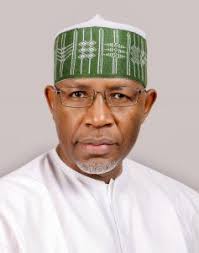The Securities and Exchange Commission (SEC) on Tuesday harped on the enormous potential of the Privatisation programme as alternative funding source for sub-national governments’ development.
The Director General of the Commission, Mr Lamido Yuguda, said at a webinar organised by the Nigerian Stock Exchange (NSE) in collaboration with the Nigeria Governors Forum (NGF) and the Nigerian Investment Promotion Council (NIPC), that the programme held a lot of funding benefits for the federal and state governments if the opportunities are well explored.
The webinar had its theme as: “Privatisation in Nigeria and the Outlook for Sub-national Economic Development’’.
Yuguda, who was represented by the Executive Commissioner, Legal and Enforcement, Mr. Reginald Karawusa, said the theme sought to tackle one of the issues relevant to financing for state governments, pointing out that there is no better time to discuss alternative funding sources at the sub national level than now in view of the adverse impacts of the COVID-19 pandemic on the nation’s economy.
According to him, privatisation held improved funding promises for the sub-national government as the proceeds from the sale of government’s interest in these enterprises would help augment budget shortfalls and can be deployed to funding critical infrastructure.
The investment expert said: “Beyond the funds to be generated, governments will enjoy cost of savings as there would be no further requirements to fund these entities post-privatisation. There are further benefits to be enjoyed through the taxes that would be paid in the future by those entities.
“As they undergo strategic transformation and become positioned for profitability, these entities are able to create jobs and employ residents of their host states, facilitate infrastructure development and further positively impact the economy in other areas.
“Sub national issuers in Nigeria have been able to access the debt capital market over the years since 1978, state governments in Nigeria have raised close to N900 billion through debt issuances.
“A significant part of these funds were deployed to finance capital projects across the country. However, the ability of states to continue to borrow in a sustainable manner has been severely impacted in recent times.
“With the huge infrastructure gap, decreased allocation from the federal purse owing to relatively low oil revenue and the depressed level of internally generated revenues, states are barely able to pay salaries after servicing their outstanding loan obligations.
“Privatisation is an avenue for governments to unlock economic potentials inherent in government owned enterprises. The focus on Nigeria’s journey on privatisation has largely been on the federal government.
“There has been several phases of privatisation exercises in the past with emphasis on enterprises operating in different sectors of the economy including oil and gas, hospitality, mining among others,” Yuguda added.
In his remarks, Chief Executive Officer of the NSE, Mr. Oscar Onyema, said the webinar was part of the bourse’s strategic efforts to assist states in their efforts to achieve sustainable economic growth.
He pointed out that privatisation occupied a critical position in economic globalisation and provided an avenue for raising the bar toward economic development.
“Given COVID-19, there is no better time to re-visit privatisation and cascade this to the sub-national levels,’’ he said.
In his remarks, the Chairman of the Nigerian Governors Forum and Ekiti State Governor, Dr Kayode Fayemi, said that state governments had been constrained to increase spending in a bid to mitigate the effects of the pandemic.
According to him, containment is fairly in place but more needs to be done to ensure progress is not lost and that is where privatisation comes in.
The governor said: “If the private sector takes over critical sectors, state governments can focus on education and health among others.”






